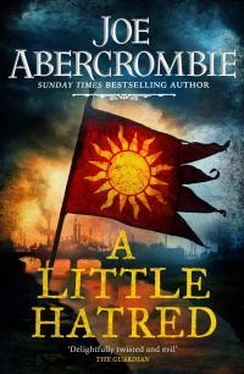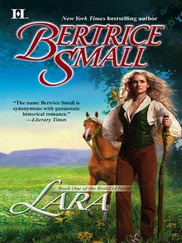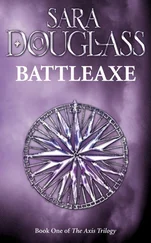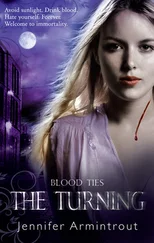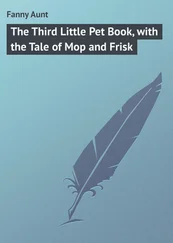Lock walked to the parapet and frowned down at the water.
Filthy water, full of foam and rubbish, streaked with glistening oil. He’d stood here often. This very spot. Considering the waters. After his wife died. Hard to imagine, in this hot summer, how bitter that winter had been.
Maybe it was the cold done it, or the hunger, or the grip, or maybe it was just the hope bled out of her. Got so she just couldn’t be warmed. Got sicker and sicker and then she never woke. His son followed two nights after, eight years old. His daughter was last to go, just before the thaw. He couldn’t remember what they’d been like, really. Couldn’t remember ’em living. But he remembered ’em dead. He’d slept next door to ’em a few nights, while the ground softened. A few last nights together.
He remembered the burying. One grave, and he’d been lucky to get it, there were so many going in the ground. His wife on the bottom, the children on top, like she was holding ’em, maybe. He’d looked down, and thought they were the lucky ones. Wished he was with ’em. He hadn’t cried. He didn’t know how. The gravedigger had put a hand on his shoulder and said, ‘You should come to a meeting. Hear the Weaver speak.’
He remembered looking over and seeing some rich folk walking past, laughing. Not laughing at him and his sorrows. Not even noticing ’em. Like they lived in a different world from him and his.
They didn’t now.
He turned to look at ’em.
A few men bleeding and a few women blubbing but Lock felt no pity. Didn’t feel anything. Hadn’t felt anything for a long time.
‘What are you doing?’ one of them asked. The man with the bloody mouth. ‘I demand to know what—’
‘Shut up!’ shrieked the girl with the ripped dress and the red cheeks. ‘Shut your fucking hole, you fucker!’
Lock looked at the heavy chain. No way any of ’em were swimming shackled to that. All he had to do was push the first couple in and the lot would be dragged after, and down to the bottom of the river, and that’d be that.
He knew it wouldn’t be justice.
But he wondered if it might be close enough.
Two men chased another past with sticks, laughing as they hit him, sent him stumbling, dragged him back up, hit him again. There was some beggar, crouching in a doorway at the foot of the bridge, watching Lock with bright eyes.
The old Breaker who led the column looked right at her and Savine edged away around the corner, huddling into her stinking coat.
She dared not go up onto the bridge, where she would be hemmed in and helpless. She had only followed the prisoners because she hardly knew what else to do. At least with them ahead, it felt as if she was not quite alone. But she could not help them. They could not help her. There was no help for anyone.
Her body wanted desperately to run, every muscle aching with tension, but there was nowhere to run to. All she could do was slink down streets scattered with torn papers, with upended wagons, slaughtered horses, broken machinery, sword clutched under her fetid rag of a coat, casting about for somewhere to hide. Some hole where she could reason out what had happened, and some way to escape it. Some place the madness had not reached. But soon enough she realised it was everywhere. Spread like sickness. Like wildfire. The whole city had lost its reason. The whole world.
She flinched at a woman’s scream, quickly muffled. Saw bodies moving in an alley, someone forced into a gutter, kicking legs, one stockinged foot, one scuffed shoe. ‘Help me! Help me!’
She could have done something. She had a sword. But instead she hurried on, the wild shrieks quickly lost in the shouts, the crashes, the barking of dogs. She heard a creaking and glanced up, recoiled against the wall. A body swung from a gib on the side of a building. A well-dressed body, hands tied, grey hair in wild disarray. Some mill owner? Some engineer? Some acquaintance of hers, who she had laughed with at some function?
She hobbled on, eyes fixed on the ground as it turned from new paving, to old cobbles, to straw-scattered dirt, to rutted mud. Narrower streets, further from the river, away from the manufactories. The buildings closed in until she crept down stinking man-made gullies paved only with the slops from the cellars, mean windows down by her boots, wretched garments flapping overhead like bunches of mad flags, little patches of the street made into pens where pigs honked and squealed and burrowed in the rubbish.
A murk even more hellish than usual had descended on the city as the sun sank and smoke from burning buildings billowed into the streets. Shapes loomed and vanished, phantoms in the soupy gloom. Savine was utterly lost. Valbeck was become a maze of horrors from which there was no escape. Could this be the same world as the one in which she presided over meetings of the Solar Society, changing lives with a flick of her fan?
Suddenly people were scattering like a shoal of fish, squealing in terror. She had no idea what they were running from but the panic was more contagious than the plague and she fled, fled mindlessly to nowhere, snatched breath sharp in her raw throat, rotten coat flapping at her skinned knees. She saw a man duck into an alleyway and followed, nearly ran straight into him as he spun about, a broken-off chair leg in his hand.
‘Get back!’ His face was so deranged, he hardly looked human. He shoved her and she fell, biting her tongue, sprawling in the street, nearly cutting herself on her sword as she rolled in the gutter. Someone kicked her in the side as they ran past, tumbled over her. She scrambled up, limping on, wincing at new bruises.
Could it have been only that morning she swapped small talk at Mistress Vallimir’s overdecorated breakfast table? Such a fragrant tea, who is the importer? Could it have been only an hour ago she had mused on the price of children with the colonel? Her lovely new sword-belt, such craftsmanship! Now the colonel and his wife were more than likely murdered and Savine dan Glokta was a memory. An unlikely story she once heard.
If fate let her live through this nightmare, she would be better. She would be the good person she had always pretended to be. No longer a gambler. No longer an ambitious snake. If fate would only let her live. Soon enough, she realised she was muttering it to herself with every whimpering breath.
‘Let me live … let me live … let me live …’
Like a poem. Like a prayer. She used to laugh when Zuri spoke of God. How could someone so clever believe something so silly? Now she tried to believe herself. Wished she could believe.
‘Let me live …’
She limped into a square of buckled cobbles, a grand building burning at one end. Fire spouted behind black columns, ash fluttering down against the bloody sunset. An old statue of Harod the Great stood in the centre. Figures were gathered around the pedestal, beating at the legs with hammers. Others had tied ropes about its shoulders, straining to drag it down. A gleeful crowd watched, torches in their hands, screeching with joy and fury, swearing in rough voices. Music was playing, a pipe and a fiddle tooting and sawing, a woman crazily dancing, ragged skirts and ragged hair whirling. And a man. A naked, fat man lumbering about. An air of mad carnival.
Savine stood staring, beyond desperate, beyond exhausted. She was filthy as a pig. She was thirsty as a dog. She almost wanted to laugh. She almost wanted to cry. She almost wanted to join the dancers, and give up. She sagged against a wall, trying to breathe. Trying to think. But that mad music left no room for it.
Figures, black against the fires, shimmering with their heat. A tall man in a tall hat, pointing, screaming.
‘Rip it down !’ bellowed Sparks.
He was a fucking king, and this square was his kingdom, and he’d suffer no other king within its borders. ‘Rip it down!’
Читать дальше
